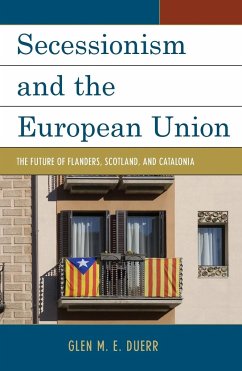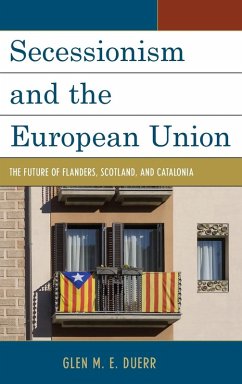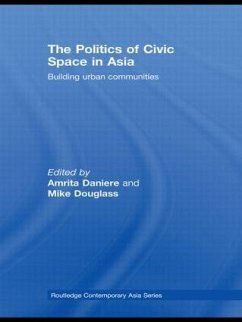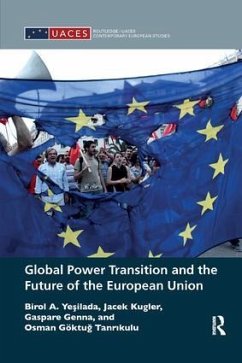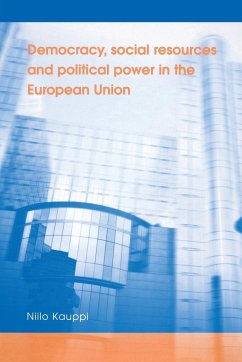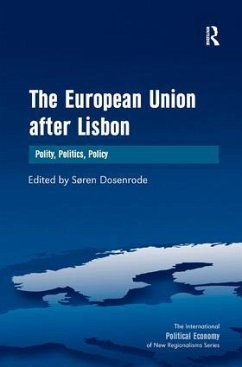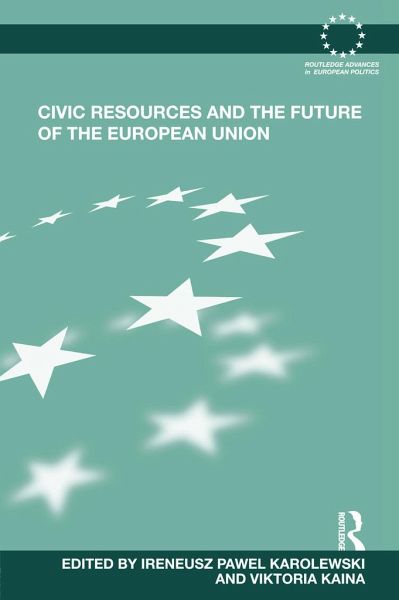
Civic Resources and the Future of the European Union
Versandkostenfrei!
Versandfertig in 1-2 Wochen
176,99 €
inkl. MwSt.

PAYBACK Punkte
88 °P sammeln!
The European Union (EU) has undergone fundamental changes and faces enormous challenges ahead, its legitimacy and elite-orientated complex decision-making has been questioned and European citizens are becoming increasingly critical of a long-lasting unification process. This volume opens up a new perspective on the political system of the EU by exploring civic resources as a crucial underpinning for the EU 's sustainability and examines how European citizens themselves may contribute to the long-term endurance of the union. Focussing on trust, solidarity, mutual recognition and citizens social and political participation, the authors seek to theoretically explore and empirically investigate potential civic resources that the EU might need to become both effective and legitimate. This important volume will be of interest to students and scholars of European Politics and European Union Studies.
This book shines new light on the political system of the European Union (EU) by focusing on civic resources as a keystone of the EU's ability to sustain. Less-tangible resources such as trust, solidarity, mutual recognition and citizens' social and political participation have been, until now, largely ignored in the research on European integration.





